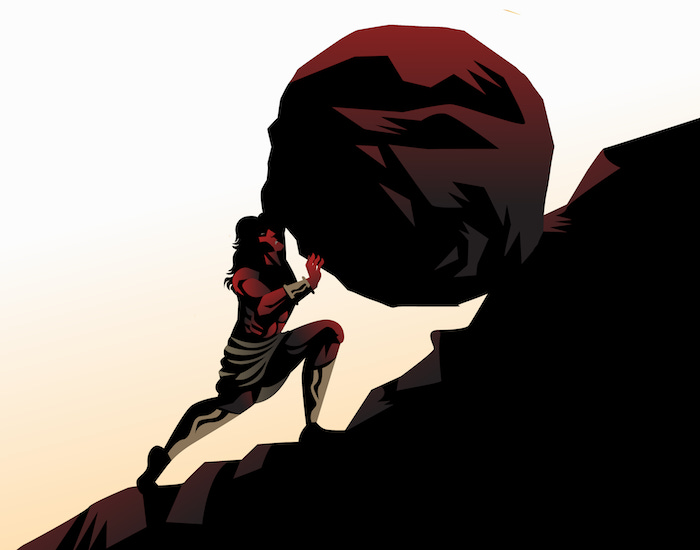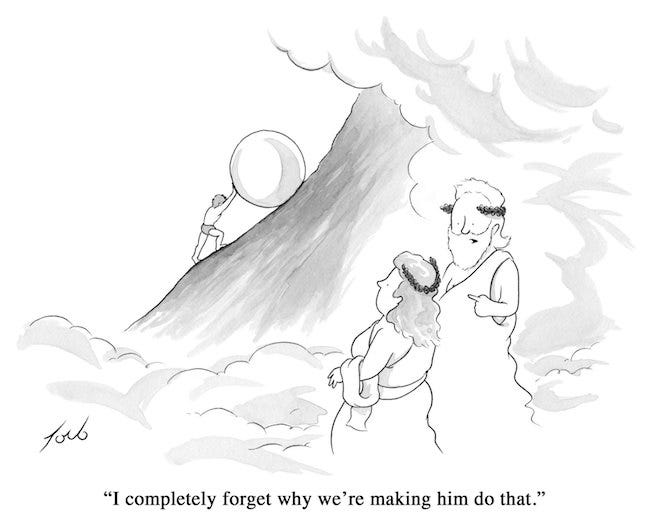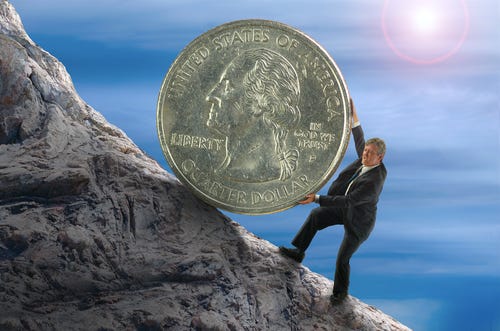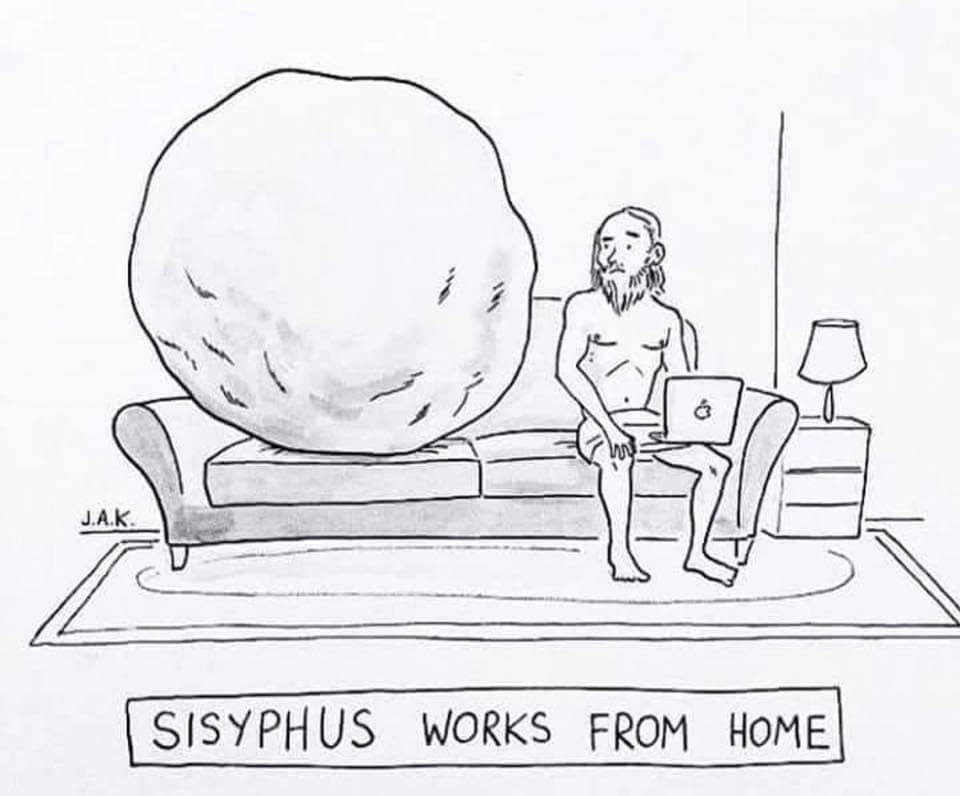As leaders, we have more choices than the eyes can see
The myth of the human condition and how we can achieve escape velocity from ordinary self-deception

In the hearts of the collective, there is a murky consciousness lurking. Some days, it’s a slow, indulgent melancholy. Other days, it moves faster than our human minds can keep up. We see it. We hear it. When we don’t see it or hear it, we feel it enveloping our senses.
It’s tough to put a word to that feeling. What exactly is it? It shape-shifts. Some days, it’s despair. Other days, it’s nothing at all. Then, there are moments when it feels like a tranquil, dull warmth from a heat lamp. All of a sudden it disappears, and we begin to see a flickering light at the end of the tunnel.
Those moments seem to be fewer and far between. Yes, we share moments of laughter in the absurdity of it all. But then we remember that we’re paper-thin statues, aching for a new foundation while immersed in an all-powerful, all-engulfing cyclone of seemingly never-ending suffering.
It’s like the universe is trying to send us a message — or something.
Is this what philosophers call “the human condition?”
As humans in a modern society, we have a habit clinging to stories from the past, as we move into the future. We grasp to them like imaginary friends, seeking solace and safety. When we experience dissonance, we cling to these blueprinted ego constructs that defined who we were, before we existed on this planning. We seek the temporal security blanket of cognitive toolkits. It’s the human condition, they say. Futility and evil are the root of it, they remind us.

It is in these moments that many of us, consciously or unconsciously, resign ourselves to embodying the plight of Sisyphus — a king/serial victimizer from Greek mythology who suffered the eternal punishment of rolling a boulder up a hill, in Hades. Up he would push the rock. Down it would fall. Up he would go. Repeat.
We didn’t get very far, did it? Same shit, different day — as the saying goes.
We woke up this morning, and the environment was in near-calamity. There was an opioid epidemic. There were a record number of suicides among young people. People were spiraling into poverty. We woke up this morning, in Hades.
What would Sisyphus do?
Keep going.
Why?
Because he was condemned to eternal punishment of having nothing better to do.
…So that’s what life’s supposed to be? Eternal punishment?
That doesn’t seem right. It doesn’t make sense at all.
Just open your eyes. Look outside. Pick up the phone and call a friend. Hug someone living with you. Turn off the TV, and spend the day doing nothing at all. Take 7 minutes of your life to do some gosh-darn meditation. Look at the sky. Watch the clouds move. The world shifts in tone to something remarkable and beautiful doesn’t it? There are infinite choices, spanning infinite moments.
Maybe that’s the story that ancient philosophers wanted to teach us — that choices, in life, are superpowers. One day, these choices may cease to exist. Then what?
Even Sisyphus couldn’t tell you the answer to that question. He chose to lose his power of choice for the end goal of power, alone.
Rediscover your power of choice
Our three dimensional senses are deception-engines.
What we see is equal parts real and entirely imagined. It is both real and imagined that billions of people around the world are destined to a life of destitution and poverty, through no fault of their own.

It is real because it is true. It is imagined because poverty is a human-engineered construct. Just like that, a handful of leaders could erase suffering. But that’s not the story they tell themselves. They earned it. They’re doing their part as philanthropists. They’re the kings and heroes of the story. They had every choice in front of them. They chose themselves — over and over. Up the hill they pushed that story. Down the rock fell, smothering everyone and everything in its path.
Over time, the path became more barren. Once it was lush. Then, it was dirt. A few years later, we woke up one morning to a climate crisis. That one morning became every morning. The leaders kept rolling rocks, unaware of the simultaneous power and powerless of our human nature. The world became Hades.
Everything that we see around us came into existence from our powers of manifestation. But within this power construct, we convinced ourselves that we were powerless. We were simply acting out the stories that shaped our thinking and patterns of behavior.
We became powerless to the stories that we tell ourselves. But we continued to tell ourselves the same story.
Up we roll the rock.
Down it falls.
Repeat.
One day, Sisyphus felt tired. He decided to sit down and self-reflect on the true nature of his fate. He took out his journal. He began writing down every decision that he had made in life, how it impacted others, and the benefits that he gained. He then began to see how Hades came to be.
He started by making a list of every choice he had and every choice that remained in front of him. There were only two choices left.
It is with discovery that Sisyphus discovered the most important choice of all.

.
